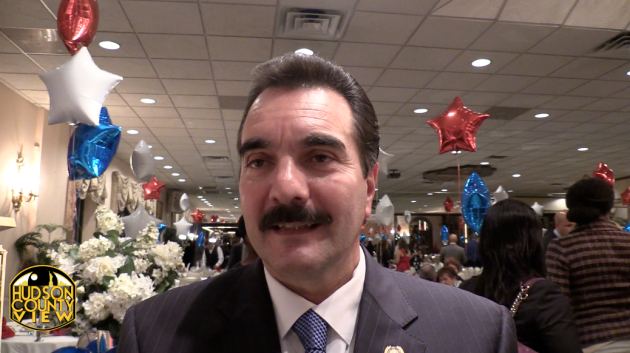A bill that would be instrumental in bringing two casinos to North Jersey advanced in the Assembly Judiciary Committee earlier today, with provisions to the legislation aimed to help Atlantic City, property tax relief and the horse racing industry. 
By John Heinis/Hudson County View
The measure sponsored by 17 Assembly Democrats, including Speaker Vincent Prieto (D-32) and Assemblyman Raj Mukherji (D-33) would allow the Legislature to pass laws to permit casinos in two northern New Jersey counties.
“I’ve long said North Jersey gaming was a matter of when, not if, and with this proposal, voters will get the chance to strengthen our state’s financial future,†Prieto said in a statement.
“A modernized, world-class gaming industry will compete with other states and provide a hefty infusion of money for programs and property tax relief for senior citizens and disabled residents. This bill does the right thing for both Atlantic City and our senior and disabled residents. This is something everyone can support.â€
After feuding with Senate Pres. Steve Sweeney (D-3) over what provisions should go along with making North Jersey casinos a reality, the two top New Jersey Democrats reached a compromise with Republic Gov. Chris Christie to unveil a tentative $5 billion plan that could create over 12,000 jobs.
Under current law, casino gambling is permitted only in Atlantic City in Atlantic County. This constitutional amendment would allow the Legislature to pass laws to permit the establishment and operation, under regulation and control by the state, of casinos in two other counties of this state.
No more than two casinos would be permitted and only one casino in each of the two counties would be permitted. Also, each casino is to be located in a municipality that is at least 72 miles from Atlantic City.
“This bill is about keeping New Jersey’s gaming industry relevant and viable, but it’s also about replenishing hundreds of millions in annual gross gaming revenues that we have lost to neighboring states in recent years and helping our seniors and disabled residents,†added Mukherji.
“This is a common sense approach to modernizing our gaming industry.â€
The eligibility for each initial license to establish a new casino would be limited to those whose majority equity owners:
a) are holders of a New Jersey casino license that were operating a casino which was conducting gambling as of the date of passage by the Legislature of this concurrent resolution; or
b) were principal owners of a holder of a New Jersey casino license that was operating a casino which was conducting gambling as of the date of passage, if that principal owner or subsidiary also holds a valid license to own and operate a casino in another jurisdiction with licensing standards similar to those in New Jersey.
A principal owner is defined as “any person who, directly or indirectly, owns 50 percent or more of a holder of a New Jersey casino license that was operating a casino which was conducting gambling as of the date of passage.”
If a principal owner does not apply for a license within 60 days following the date on which the licensing entity indicates that applications are being accepted, or applies but fails to meet certain progress requirements that will be prescribed by law toward the establishment and operation of a gambling house or casino, any person may apply for that license.
Furthermore, an applicant for a license to establish a casino would be approved only if the applicant commits to and makes an investment of at least $1 billion in the acquisition, construction, and development of the facility in which the casino is located prior to the commencement of gambling operations.
The law would determine the location and type of such casinos and of the gambling games which may be conducted. The law would also determine the tax rate to be levied upon the gross gaming revenues derived from the gambling operations.
Additionally, in the first fiscal year in which state revenues are derived from the new casinos, those revenues would be credited to a special account to be used for the same purposes as state revenues from Atlantic City casinos are currently applied.
Then, in the second fiscal year in which state revenues from the new casinos are derived and thereafter, the revenues from the new casinos, as well as the Atlantic City casinos, would be credited to a special New Jersey Investment Fund.
Two percent of the amount credited in each state fiscal year first would be dedicated as state aid, with each half of the two percent allocated to the locality in which each of the two gambling establishments are located and operating. Locality would mean the host municipality, county, or both.
Finally, the proposed amendment would dedicate for each state fiscal year the remaining revenues in the investment fund for the purposes of the recovery, stabilization, or improvement of the city of Atlantic City.
The proposed amendment specifies the percentages dedicated for those purposes for the first 15 state fiscal years.
The other Assembly Democrats who sponsored the bill are Ralph Caputo, Gary Schaer, Valerie Vainieri Huttle, Joseph Lagana, Tim Eustace, Marlene Caride, Angelica Jimenez, Gordon Johnson, John McKeon, Tom Giblin, Sheila Oliver, L. Grace Spencer, Mila Jasey, Cleopatra Tucker and Eliana Pintor Marin.
The resolution was approved by the Assembly Judiciary Committee. As a proposed constitutional amendment, the bill must now sit on the desks of lawmakers for 20 days before being considered by the full Assembly. It must also receive a public hearing.
Even if the bill makes it through the legislature, the concept will have to be approved by New Jersey voters via a ballot question.
Jersey City Mayor Steven Fulop, who also had friction with Sweeney – another likely Democratic gubernatorial candidate in 2017 – over the particulars of the casino legislation, had advocated for a casino in Jersey City.
At a downtown town hall meeting late last month, Fulop said a Jersey City casino would bring “a revenue boon” to the city that creates “upwards of 5,000-6,000 jobs.”









Board up AC and the State will same Million$